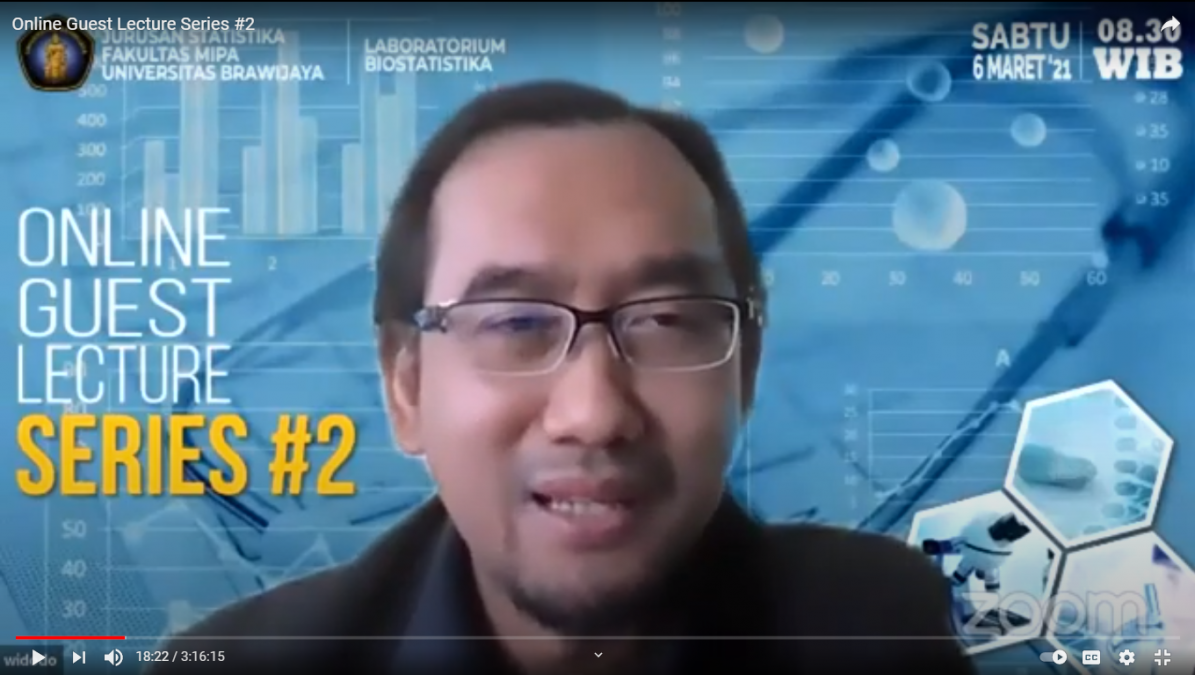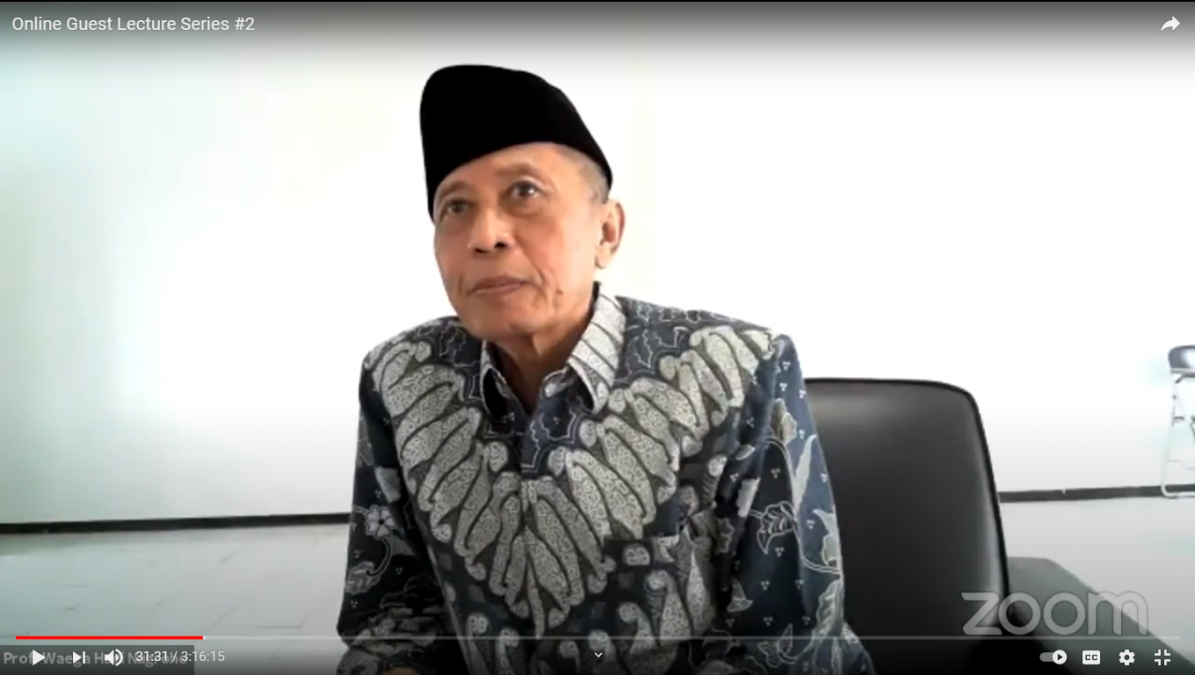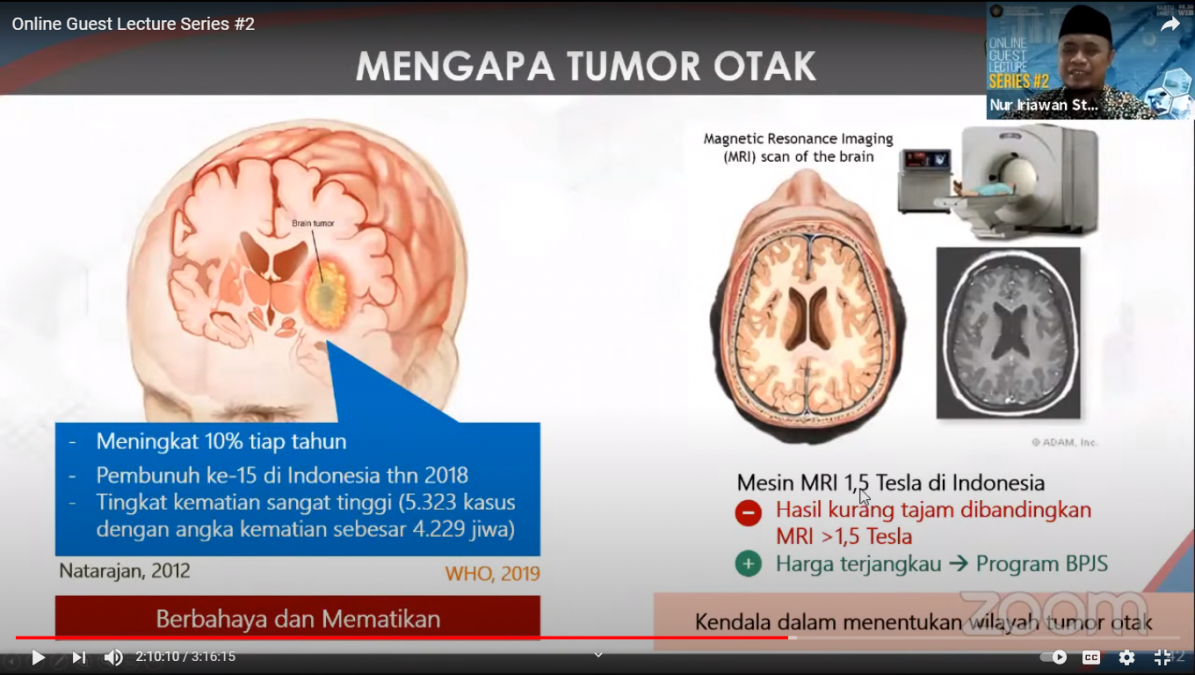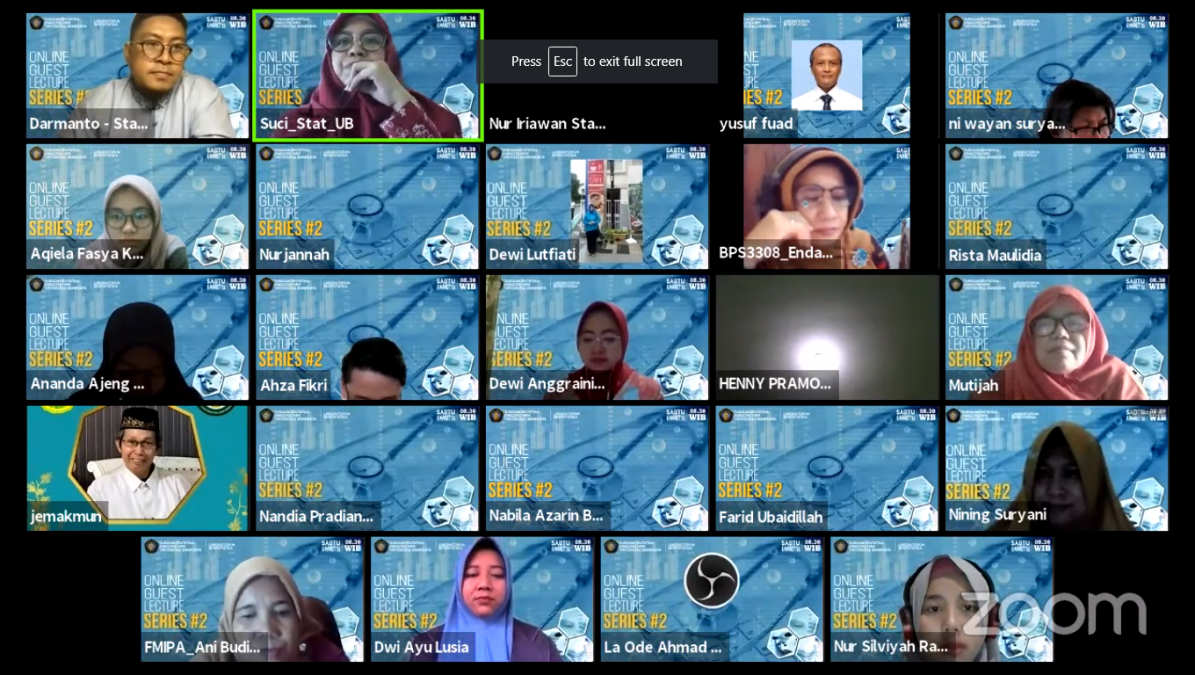Online Guest Lecture Series 2 Workshop
Saturday, March 6, 2021 – After successfully holding Online Guest Lecture Series#1 with the theme Neural Network Multivariate Time Series: Theory, Applied and Simulation. Statistics Department, Faculty of Mathematics and Natural Sciences (FMIPA) Universitas Brawijaya once again held Online Guest Lecture Series#2, hereinafter referred to as OGL#2. Similar to OGL#1, this activity is open to academics in the internal environment of the Statistics Department and Non- Department of Statistics. The purpose of organizing this activity is to add insight and deepen the topics of statistical science, especially in the field of biostatistics, for lecturers, educational staff, and students in the Statistics Department and non-Statistics Department.

OGL#2 activities presented by 2 speakers, the first speaker is Prof. Ir. Waego Hadi Nugroho, Ph.D. one of the Lecturers of the Department of Statistics Universitas Brawijaya with the material presented are Modeling Low Birth Weight and Stunting with Symbolic Regression and Logistic Regression through a Machine Learning Approach. The second speaker is Prof. Nur Iriawan, M.Ikom, Ph.D from the Department of Statistics-Institut Teknologi Sepuluh Nopember with the material presented are BIG DATA and Bayesian Modeling in Image Processing of Brain Tumors. The OGL#2 activity started at 08.15 WIB by playing Statistics’s Department profile video. Then at 08.30 WIB is continued by playing Department Profile and Bio-Statistics Laboratory Profile. Moreover, the event was opened by the Dean of the Faculty of Mathematics and Natural Sciences, Universitas Brawijaya, that is Prof. Widodo, S.Si., M.Si., Ph.D.Med.Sc. who wish this event go along smoothly and useful for adding insight to the workshop participants because it contains the latest material.

The OGL # 2 activity was divided into 2 sessions, the first session was the delivery of modeling material for Low Birth Weight and Stunting with Symbolic Regression and Logistic Regression through the Machine Learning Approach by Prof. Ir. Waego Hadi Nugroho, Ph.D. for 60 minutes. The speaker explained about low birth weight babies with 3 approaches, namely logistic regression, statistics, machine learning, and symbolic regression. In general, it can be concluded that the use of 13 predictor variables to classify low birth weight (LBW) and stunting infant body length, the three approaches have very high accuracy, if data collection is aimed at testing the hypothesis about finding the best equation and predicting the dominant variable, the logistic regression approach is more appropriate. When the data collection is aimed at classifying LBW babies or the length of stunting babies, statistical approaches, machine learning, and symbolic regression can be used. When the form of the model is known, the use of logistic regression and machine learning is more appropriate, but if the form of the model is not known, then the use of symbolic regression is an option.

The second session was the presentation of BIG DATA and Bayesian Modeling in Image Processing of Brain Tumors by Prof. Nur Iriawan, M.Ikom, Ph.D. for 60 minutes. The speaker explained about MRI Brain Tumors implemented in the Neo-Normal Mixture Model (Nenomimo) and Spatially Contained Neo-Normal Mixture Model (Sc-Nenomimo). This research separates the segments become Region of interest with other segments in the MRI image. Then image segmentation is obtained then processed with Computational Statistics and grouping with Cluster analysis.

The OGL#2 activities are very attractive to lecturers and students, the number of registrants is 761 in total. 277 participants arrived at the Zoom application. Even though during the activity there were network problems that caused unstable voices to be heard, participants really appreciated this activity and hoped that the Statistics Department Universitasa Brawijaya would be pleased to hold back events with themes such as Nonparametric Regression, Time series, Survival Analysis, Spatial Econometrics, Psychology, Sampling Techniques and Queuing Theory (Editor: DAR/NSR).
